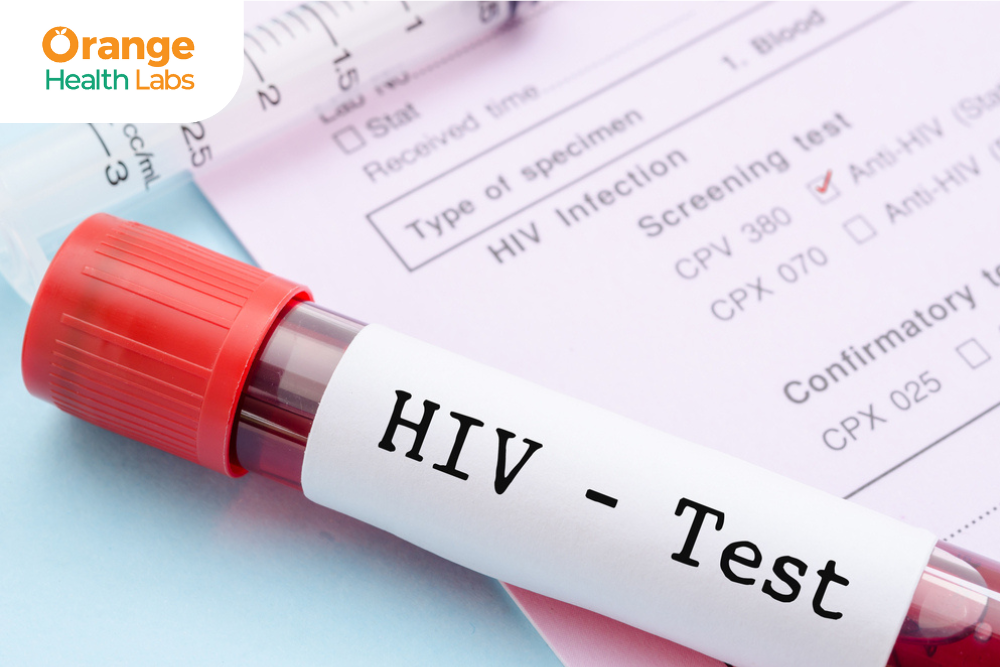Search for tests or checkups
SupportWhen to Seek Medical Attention After Getting Red Flags in Your CBC Test Results

Introduction
Complete Blood Count Test also known as CBC Test, is something your doctor might do as part of your regular check-up or when you're getting screened for health issues. These tests check for a lot of different illnesses and infections by assessing the different types of cells in your blood, that are the red cells, white cells, and platelets. Although it's normal for CBC results to vary, sometimes some signs suggest you should see a doctor for more checks. In this article, we’ll be exploring a few red flags and what they mean.
Key Indicators in CBC Results and Their Potential Implications
One of the most significant red flags in a CBC test is a high white blood cell count. White blood cells are the body's defence against infections and diseases, and an elevated level could signify the presence of an infection, inflammation, or even certain types of lymphomas or leukaemias (blood cancer).
Another potential red flag is low haemoglobin or red blood cell count, which could be a sign of anaemia Anaemia can cause symptoms such as fatigue, shortness of breath, and pale skin. The underlying causes of anaemia are varied and usually include low renal function, blood and bone marrow abnormalities, bleeding, and nutritional deficiencies (such as iron or B12 insufficiency). It’s essential to find the cause and treat anaemia. If left untreated, it can lead to more severe health issues such as heart problems (arrhythmia or heart failure) due to the heart working harder, increased risk of infections due to a weakened immune system, and potential organ damage, particularly to the heart, lungs, and kidneys due to lack of oxygen supply. Low haemoglobin can also lead to pregnancy complications (premature birth, low birth weight, maternal mortality) and growth and developmental delays in children.
Abnormal platelet counts can also raise concerns. Platelets are essential for blood clotting, and both high and low levels can have significant health implications. High platelet counts may increase the risk of blood clots (thrombocythemia), while low platelet counts can lead to excessive bleeding or bruising (thrombocythemia).
Conditions Where Immediate Medical Consultation Is Needed
In some cases, abnormal CBC results accompanied by specific symptoms may require consultation with a doctor immediately. For example, if you have a low red blood cell count and experience severe fatigue, shortness of breath, or chest pain, these symptoms could indicate a serious condition that requires prompt attention.
Similarly, if you have a high white blood cell count and are experiencing fever, chills, or other signs of infection, it's crucial to seek medical advice without delay. Delaying treatment for severe infections can lead to complications and potentially life-threatening situations.
Also, if you experience conditions like unexplained bruising, bleeding gums, or other concerning symptoms along with abnormal platelet levels, you should seek medical attention immediately.
When your doctor looks at your CBC results and notices something unusual, they will consider what's normal for you because sometimes healthy people can have results outside the usual range. So, it's often a good idea to do a Peripheral Blood Smear (PBS) and other basic tests related to the CBC issue.
Not every abnormal CBC result need immediate attention, but some do. Severe problems like very low blood counts or signs of serious conditions may need quick specialist attention. However, before starting expensive tests based on an abnormal CBC, it's smart to check past medical records. During your doctor's visit, make sure to mention any worrying symptoms or repetitive symptoms that might be concerning you. Your doctor will understand your results and guide you on how urgently you need further help or treatment.
Preventive Measures and Regular Health Monitoring
Regular CBC tests are essential for monitoring your overall health and catching potential issues early. Health problems, when caught in earlier stages, are usually more responsive to treatment, lowering the risk of associated complications. Therefore, even if you feel perfectly fine, it's recommended to undergo routine blood tests as part of your annual check-ups or as advised by your healthcare provider.
Additionally, maintaining a healthy lifestyle can significantly contribute to maintaining healthy blood counts. A balanced diet rich in essential nutrients, regular exercise, and proper hydration can all support the production and function of various blood components. To maintain healthy blood counts, consider the following tips:
- Eat a balanced diet rich in iron (lean meats, spinach, lentils), vitamin B12 (eggs, dairy, fortified foods), and folate (leafy greens, citrus fruits, legumes).
- Engage in regular physical activity, such as brisk walking, jogging, or swimming, to promote healthy blood circulation.
- Avoid or quit smoking and limit alcohol consumption to moderate levels.
- Practice stress management techniques like meditation, yoga, or deep breathing exercises.
If you get routine CBC tests and take care of yourself, you can keep an eye on your blood health and lower the chance of problems. This helps find and treat any issues early on.
How to Prepare for Your Doctor’s Appointment
If you receive concerning CBC results, it's important to prepare for your doctor's appointment. Make a list of any symptoms you've been experiencing, no matter how minor they may seem. Bring a copy of your CBC results and any previous medical records that might be relevant.
During the appointment, don't hesitate to ask your doctor questions about your results, potential causes, and recommended next steps. It's also helpful to inquire about lifestyle changes or preventive measures that could improve your blood health.
Book CBC Test in your city: CBC Test in Noida | CBC Test in Bangalore | CBC Test in Mumbai | CBC Test in Hyderabad | CBC Test in Gurgaon | CBC Test in Faridabad | CBC Test in Delhi
Conclusion
Understanding the truth behind these common misconceptions is crucial for making informed decisions about your healthcare. CBC tests are simple, affordable, and invaluable tools that provide a comprehensive overview of your body's condition. By recognising the importance of these tests and dismissing misconceptions, you can take an active role in maintaining your overall health.

Top 5 Signs You Might Need Thyroid Function Test

The Role of HIV Testing in Prevention and Treatment
